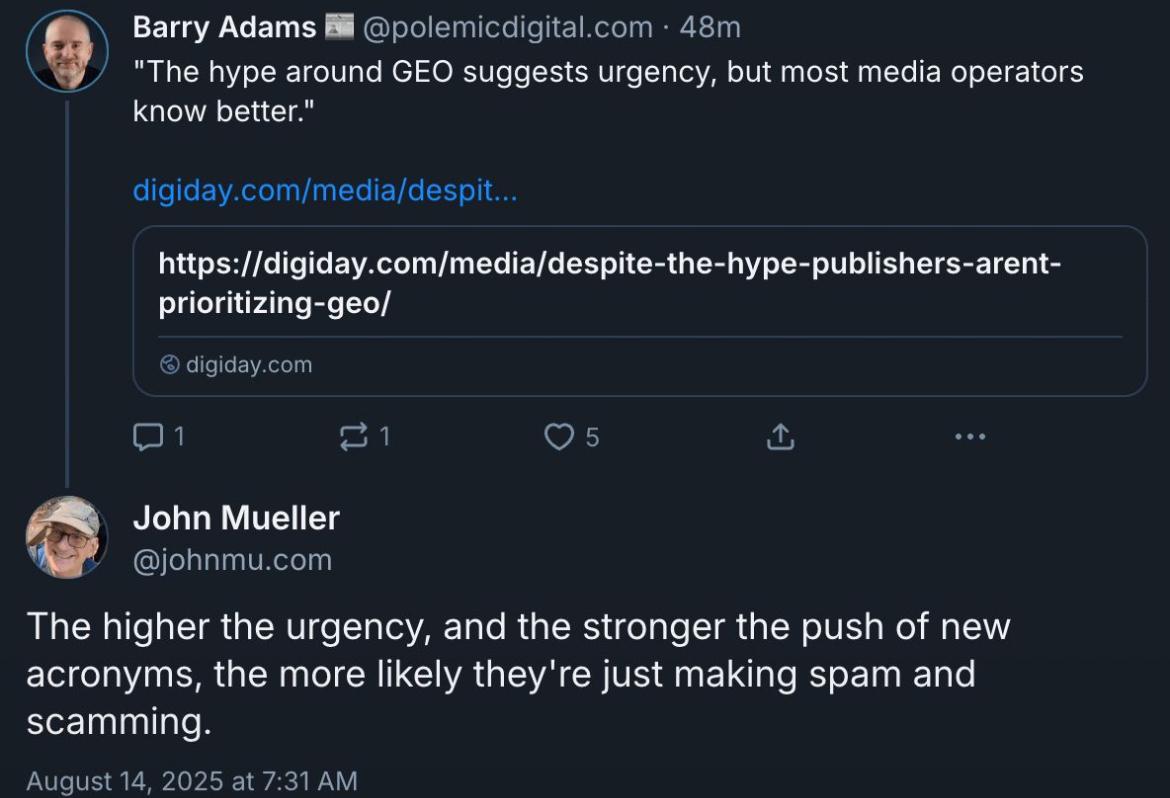
It’s an AI Summer. Your newsfeed, your meetings, even the ads between your grandpa’s TV show on cable; AI, AI, AI. Artificial Intelligence is the next iteration of the digital evolution we are all living through, and just like previous breakthroughs, it comes with uncertainty and opportunity for both good and bad actors early on.
There is no doubt that AI can help you accelerate your traditional SEO campaign (ranking on Google). It can create blog outlines so you can write faster, help you find relevant websites for link building, and assist with many technical tasks. But what happens when the search engine people are going to become less and less traditional and more and more AI-based? How do you rank in these new search engines? Can it still even be called SEO? And will the tenets of traditional SEO still apply?
With new tech comes new acronyms. You will see SEO agencies adding language like AIO or LLMO to their site in an attempt to capture people searching for these services. At the end of the day, no new acronym is really necessary.

Any vehicle a human types a search into, whether GPT, Google, or YouTube, is a “search engine”. But a new acronym means more fuzziness on the side of the business owner, who can't keep up with all these changing letters, opening up the possibility of being taken advantage of.
In the late 90s and early 2000s, the traditional search engine space was very similar to the early days of “AIO” we are living through today. Those who win are not necessarily the best, but rather are those who understand how the engine works and how to reverse engineer it.
Just as in the early 2000s, companies were paying tens of thousands of dollars monthly for keyword stuffed content and spammy PBNs to get quick wins, many of today’s leading AIO companies use similar tactics because the ends justify the means (for now).
Instead of keyword stuffing, they may use prompt injection strategies to send thousands of messages to ChatGPT, coaching the LLM to spit out an answer in their favor versus a competitor. To us, this is no different than placing your money keyword in white text on a white background. Instead of spammy PBNs, now the focus has shifted back to spammy directories and listicles as some of the more often cited ways to boost your AIO.
Sure, this might work today, and it might work for a while, but the same way Google was able to improve its algorithm over time, penalizing those bad actors, it would be foolish to think OpenAI won’t do the same at some point.
While it may seem enticing to cheat the system, the types of clients we attract at Mad Mango are more focused on long term stability. This comes from doubling down on what Google has discovered over the last 30 years of collecting nearly every search on the web: authenticity and a user-centric focus. That being said, there are a few things you can do, but most of these are what the good SEOs have been preaching for the last decade.
- Proper schema and an eye on your indexing (Bing sitemap submissions)
- Content rich pages that enhance the user’s experience and get them the info they need efficiently (FAQ accordions and easy to read copy over blocks of text)
- User generated content on your site and socials
- Independent reviews across a multitude of platforms
- Industry directory placements
- Being mentioned by other websites in an authoritative way (backlink building)
- Being mentioned on sites frequented by LLMs like the Wikipedia family of resources
"Additionally, we are seeing trends in the industry that Generative AI search engines are looking for more natural language answers that provide more than just quick punchy seo keywords.
They are designed to provide conversational-style responses, and including that type of content can help improve your chances of being recommended."
While it is true that AI models like ChatGPT do far more than just search the web, meaning they have other things to worry about than catching AIO spammers, they have far greater computing power than Google did back in the early days. We are confident that eventually, AIO will be an arena where the best actors are rewarded and past cheats are penalized. After all, bad search results will lead to a loss of user trust, and nothing is more paramount to the long-term success of any search engine than trust.
Our final word of advice for now: Continue best SEO practices with an ear open to non spammy tactics in AIO, as things are certainly moving that direction. But for now, there is still far too much traffic on Google to risk your site for a short term win.